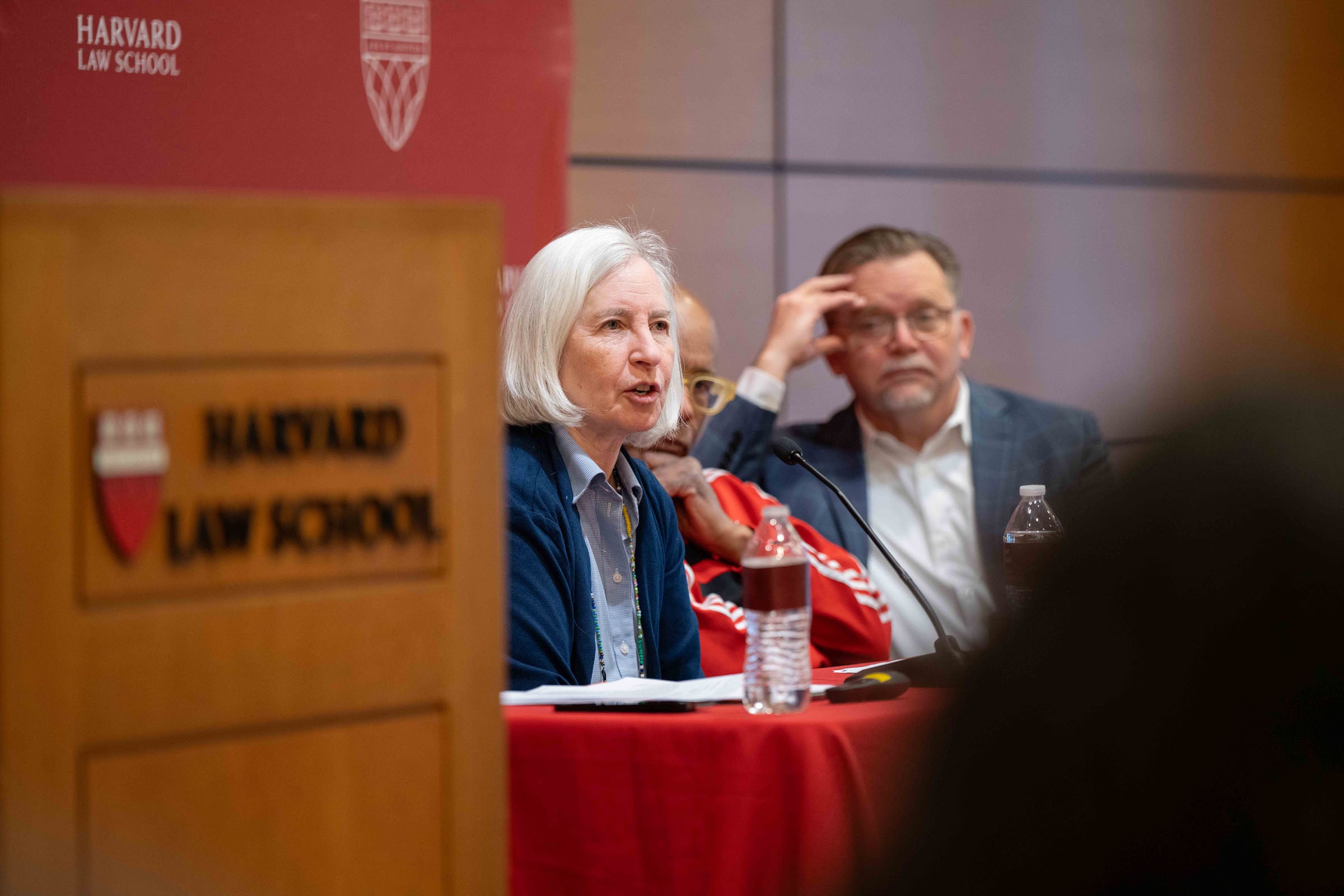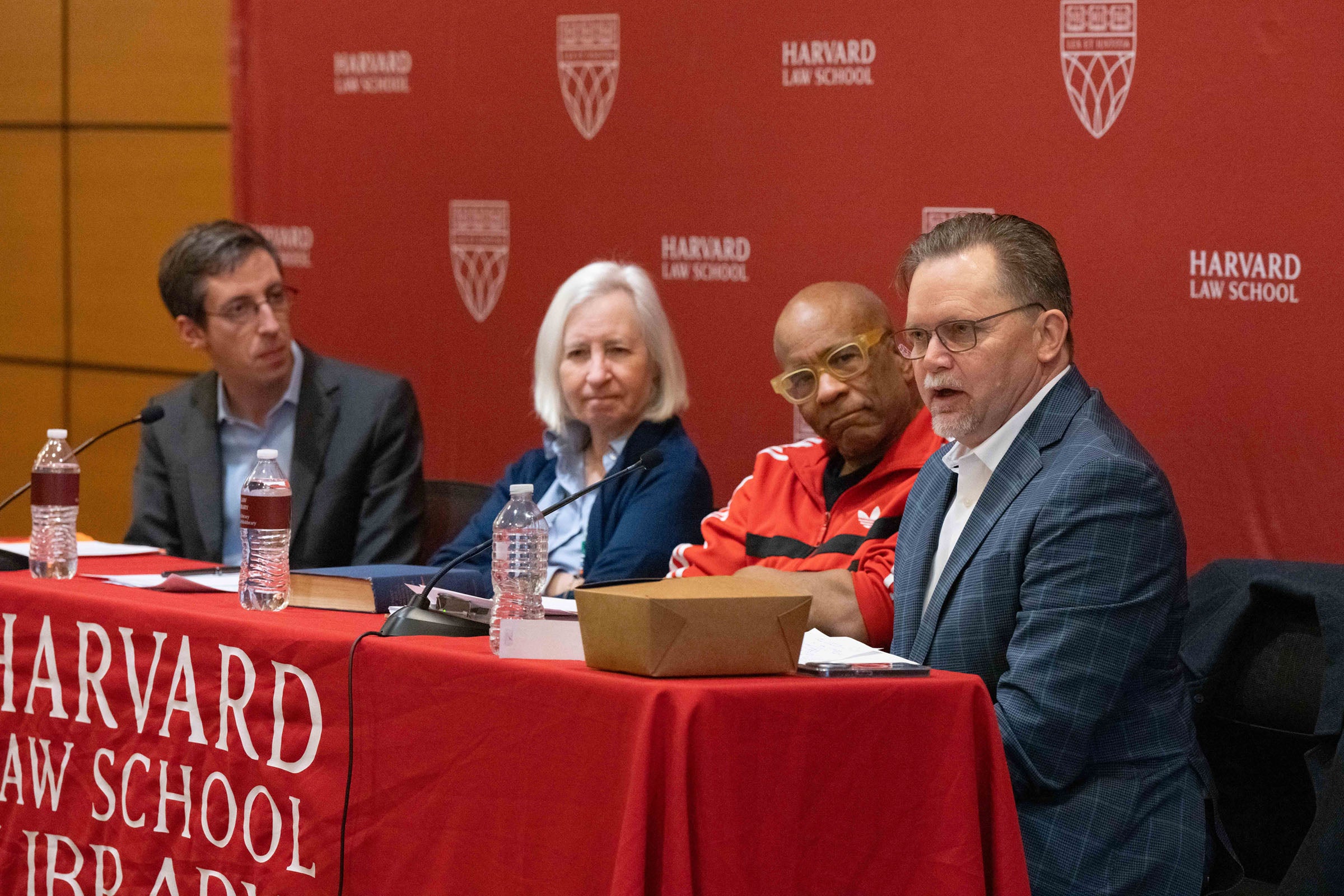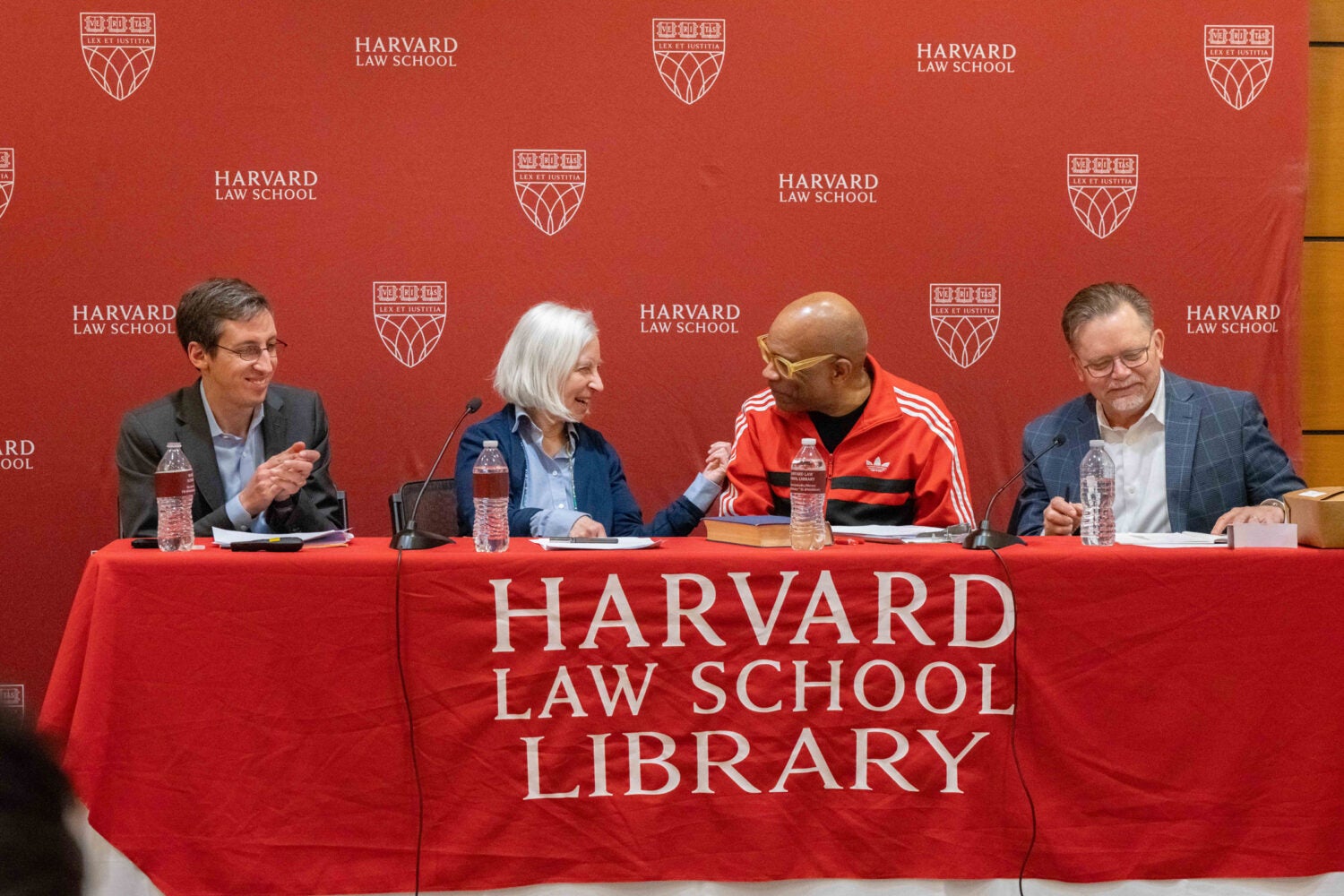The philosophy of the American Journal of Law and Equality, launched by three Harvard Law School professors four years ago can partly be traced to a pivotal moment for one of its founders, former Harvard Law Dean Martha Minow, from when she was an undergraduate.
She had walked into a dorm room and saw two disparate posters on the wall, she recalled during a Library Book talk at the Law School last week. One quoted Henry David Thoreau saying “If a man does not keep pace with his companions, perhaps it is because he hears a different drummer.” The other said “No man is an island.” Minow was immediately struck by the contrast. “On one hand, we have a poster saying ‘Be your own self,’ and the other was saying ‘We’re all connected.’ And I thought, ‘This is college. We’re going to be living with conflicting or contrasting views.’”
She flashed on that moment while writing the article “Justice in Divided Societies” for the current issue and thought of two other differing admonitions that she often ponders. One says to speak out against injustice, and the other says not to demonize your foes. Her article argues that it is possible, if difficult, to pull those ideals together.
“I think it’s a tough challenge, and it’s something I struggle with every day. You feel strongly about your views, and it is very tempting to treat the people on the other side as somehow less than you, or as enemies, or even as nonhuman. And yet we know that leads to the cycles that are terrifying, in this country and elsewhere.”

The library talk celebrated the fourth annual issue of the journal, which was founded by Minow, Randall Kennedy, and Cass Sunstein ’78 in collaboration with MIT Press. During the discussion, Kennedy recalled the pandemic-era climate that led to the journal’s founding.
“It was also the middle of the widespread reaction to various police killings and other atrocities in the United States, and there was a lot of ‘upsetment’ about that. The question was: ‘What are we going to do about that? People are asking a lot of questions. Don’t we want to do what we do, channel this upsurge in emotion in a certain way, channel it into academic pursuits?”
He pointed with pride to the journal’s two dedications to pioneers in racial justice — the third issue to the eminent attorney Newton Minow (Martha’s father), and the current one to the late Harvard Law Professor Charles Ogletree ’78 — and to the diversity of opinion represented in its pages.
In particular, he pointed to Minow’s article on equality and equity, which is the most-read piece to date. Also high on the most-read list were the journal’s symposia, including one on meritocracy and a recent one on the landmark case Brown v. Board of Education. “I’m willing to bet that there is not another symposium on Brown that has as wide an ideological spectrum of voices as this one,” he said.
Finally, he mentioned the current issue’s symposium on affirmative action, “again an issue right on our front pages, still extremely volatile.” Two panelists, Harvard Law Professor Benjamin Eidelson and Boston College Law Professor Kent Greenfield, contributed to the symposium and unpacked some of its issues during the talk.

Eidelson looked at contradictory factors in the oft-discussed 2023 case of Students for Fair Admissions v. Harvard. This U.S. Supreme Court decision is widely understood to have put an end to race-based affirmative action programs in college admissions, ruling that they violate the Equal Protection Clause of the 14th Amendment.
But Eidelson, referring to an article called “Unreflective Disequilibrium” that he co-wrote with Deborah Hellman of the University of Virginia School of Law, argued that the decision leaves a lot unresolved. “In an interesting and problematic way, it’s incoherent. It’s unwilling to do the reconciling work to square the different things that the justices in the majority think … And that leaves the law in an indeterminate place.”
The key concern, he said, is a section of the opinion that reads “Nothing in this opinion should be construed as prohibiting universities from considering an applicant’s discussion of how race affected his or her life, being through inspiration, discrimination, or otherwise.” That, he suggested, muddies the waters.
“They’re blessing something at the same time they’re quote-unquote ending affirmative action. How they think both of those things can be true is an interesting issue.” The article, he noted, spins out various hypotheticals to address this paradox — that college applicants can still mention how race affected their lives, even while they’re prohibited from citing race itself.
Greenfield discussed his journal piece, “Using the First Amendment to Save Race-Conscious College Admissions,” which connects the decision to another controversial one from 2023, 303 Creative LL.C. v. Elenis, which ruled that a for-profit company was not bound by anti-discrimination law to create websites for same-sex weddings, and was protected by the First Amendment. Greenfield was present for that argument, and it struck him that perhaps mission-driven private universities could claim the same First Amendment protection when it came to using race in applications.
“Just as the Boy Scouts have a right to choose their own community, the South Boston Parade had a right to choose who marched, [and] 303 Creative has a right to choose who it speaks for, universities have that same right to operationalize their mission through its admissions process. So, it’s yet another way to expand the possible ways for universities to withstand what would otherwise be a very harsh rule.”
Want to stay up to date with Harvard Law Today? Sign up for our weekly newsletter.
